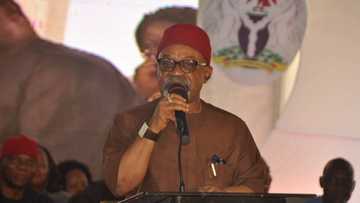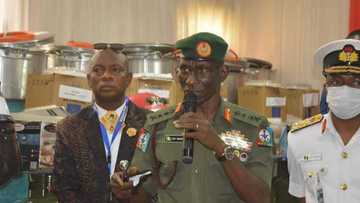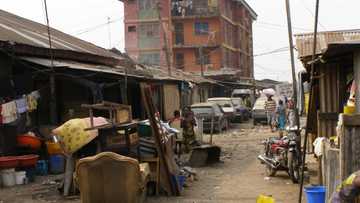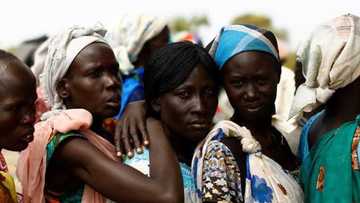Post COP26: Experts Urge Nigeria to Up Her Negotiation Capacity on Climate Change Issues
- Youths across Nigeria who are interested in issues of climate change and finding workable solutions that could address these challenges should be trained to improve their negotiating capabilities
- This submission was made by experts on climate change during a meeting on Post COP26 gains, disappointments and missed opportunities for Africa and Nigeria
- The experts also called for a change in Nigeria's approach to addressing the issues of climate change in the country and across Africa
PAY ATTENTION: Click “See First” under the “Following” tab to see Legit.ng News on your Facebook News Feed!
Experts across Nigeria have called for capacity building for Nigerian youths who negotiate on issues of climate change adaptation, mitigation and financing.
One of the experts, Dr Dayo Kusa, an advocate on climate change and a safer environment said several Nigerian youths are yet to understand the intricacies and needed strategies to stand out and achieve their aims at the negotiating tables.
Speaking at the Post-COP26 meeting organised by Friedrich-Ebert-Stiftung (FES) Nigeria in collaboration with the Coalition For Socio-Ecological Transformation (COSET) in Abuja, Kusa said negotiating capacities especially at the country level are never the same.
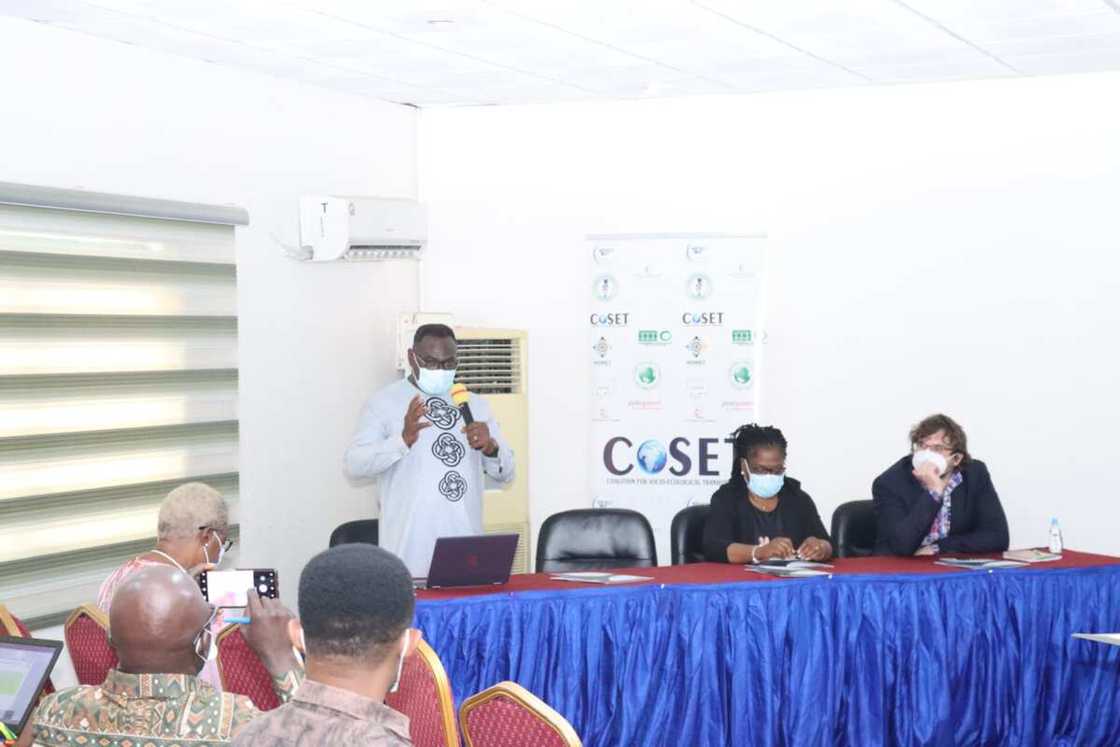
Source: Twitter
She said there are several mitigating factors against Nigerians having a strong negotiating ability at high-powered meetings.
PAY ATTENTION: Join Legit.ng Telegram channel! Never miss important updates!
Kusa said:
"There are negotiating factors like colour, finances, accent - nobody says it out loud and clear but it's there.
We need a climate change conference for the people of Nigeria. Nigeria should go with a voice - one voice - and then expand it from there to Africa as a continent."
Noting that country relations can never be equal, Kusa said Nigeria cannot gain more on the issue on the ground because as a people they are already looked down upon.
Also volunteering to serve as a trainer who would join the train of capacity building for young Nigerians on the team, Kusa said youths focused on climate change must learn the ropes of negotiating their way out of difficult situations.
In his address, Father obi Edward said it is time to activate the game theory if Nigeria expects to get things to work in her favour.
Edward said:
"We should look at other ways of getting things done and going through these discussions instead of using the same pathway that has never worked."
Also, in his opening remarks, Nigeria's resident representative for FES, Daniel Mann said damages created by climate change affect the daily life and activities of farmers and others who engage in earthly works.
He said that the Nigerian government hardly brings the issues of the people, especially those in the rural communities to the front burner of discussion tables.
Also speaking, the minister of environment, Sharon Ikeazor, said climate change has affected lives and livelihood around the world with its constant threat of intensifying maximum and minimum temperatures, rising sea levels, droughts and storms.
Ikeazor represented by Iniobong Awe, a director of the department of climate change at the ministry of environment said the effects of climate change can be experienced in its direct harm to lives of humans, the environment and animals, destruction of habitats among many others.
She said that as the changes in the climate worsen across the globe, there is a foreseeable dangerous outturn of weather events that would become more severe and frequent.
The minister said:
“It is within this context that the goals of the COP26 were created. The major commitment was to curb Methane emission, halt and reverse forest loss, and align the finance sector with net-zero by 2050.
“From this commitment, Nigeria vowed to achieve NetZero by 2060, to achieve this bold commitment it is important to state that while global warming will continue to mid 21st century, failure to take immediate action on any of the main outcomes would mean that the target set by the government of remaining below 1.5 degree Celsius will be lost."
She also said that Nigeria will continue to explore opportunities available to transition through its effort to tackle or adapt to the changing times.
For Cadmus Atake-Enade, who is the project lead for Fossil Politics, Health of Mother Earth Foundation, the world continues to hope for great outcomes since the commencement of the Conference of Parties (COP1) in Berlin.
He said expectations have continued to grow with many seeking solutions to the climate crisis bedevilling the globe.
Atake- Enade said, the Glasgow Climate Pact was a mere whimper as far as climate actions and solutions are concerned.
He said the Pact referred to climate justice as something important only to some people and not relevant to others.
He added:
“Fossil fuels investments are set to continue to grow. In Oil Change International’s report, Sky’s Limit Africa, we learn that the fossil fuel industry plans to sink $230 billion into the development of new extraction projects in Africa in the next decade and up to USD 1.4 trillion by 2050.
Even as the Nigerian government claims the right to use fossil fuels for development and energy provision."
He also said that a total phasing out of all forms of fossil fuel across Africa and globally through the promotion of real zero will give a chance for the recovery of the Niger Delta.
He said the process can also help prevent a repeat of catastrophic oil spills such as the Aiteo OML 29 oil well blowout in the Niger Delta region.
Climate change contributes as much security challenge as Boko Haram, others, experts warn
Experts in Nigeria have raised alarm on the need to pay attention to issues of climate change across Nigeria.
These experts highlighted the impact of climate change on the nation's security, women, youths and critical roles played by the challenge in driving armed conflict.
The experts further called for local solutions to the security threats and challenges faced by citizens in adapting to climate change.
There's a need to include reproductive health in climate change plans, group says
A group had called for the inclusion of sexual and reproductive health and rights in climate change discussions.
The group said its review of the National Action Plan on climate change shows that there is only one mention of SRHR.
According to the group, the mention of SRHR in the document is in relation to the proper disposal of waste.
Source: Legit.ng


